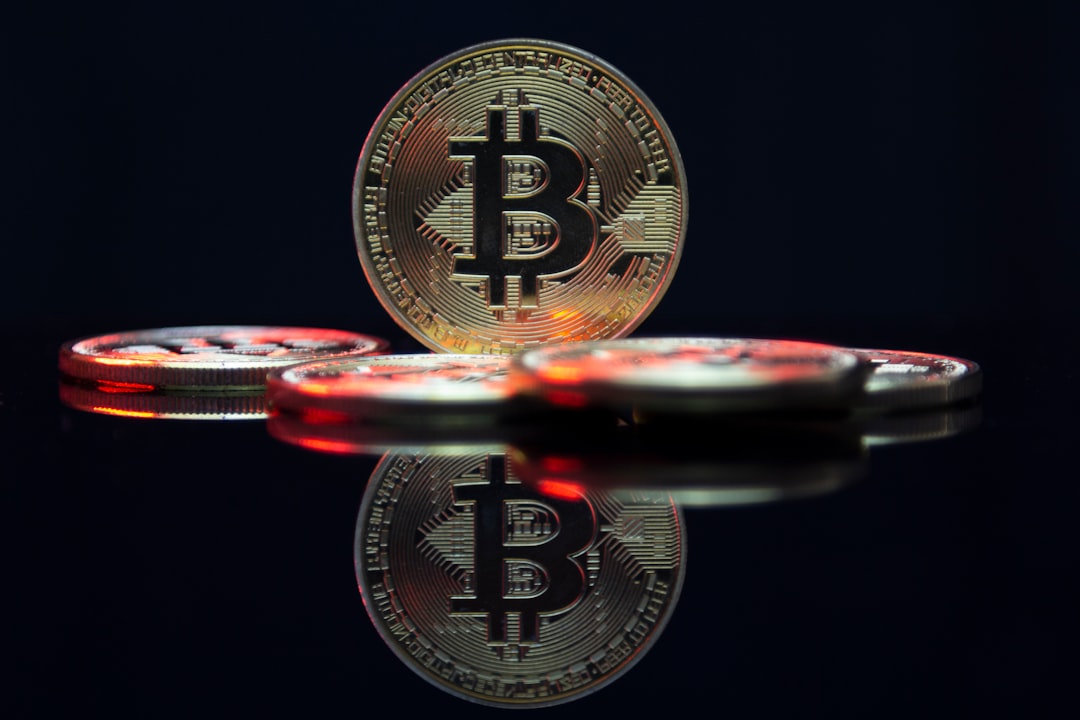Building a Secure Financial Future as a Worldwide Explorer

Introduction
The modern explorer no longer follows a single passport stamp or a fixed address. Digital tools, remote work opportunities and a global network of co‑working spaces allow people to live and earn from any corner of the planet. This freedom, however, comes with a set of financial responsibilities that are often hidden behind the romance of sunrise beaches and mountain huts. Building a secure financial future while moving from country to country requires a clear plan for income management, tax compliance, legal protection and health coverage. The following guide walks you through each of these pillars, offering practical steps that can be applied whether you spend a few weeks in Southeast Asia or several years wandering across continents.
Understanding the Nomadic Financial Landscape
Income Sources and Currency Management
Most worldwide explorers rely on a mix of freelance contracts, remote salaried positions, digital product sales or investment income. Because earnings can arrive in multiple currencies, it is essential to:
- Choose a primary banking hub that supports multi‑currency accounts. Many fintech platforms allow you to hold, convert and spend in dozens of currencies without excessive fees.
- Set up a systematic conversion strategy. Converting large sums during favorable market rates can reduce the impact of exchange‑rate volatility on your purchasing power.
- Keep a record of every inbound and outbound transaction, noting the currency, date, source and purpose. This log becomes the backbone of your tax reporting and financial analysis.
Cost of Living Variability
Your day‑to‑day expenses will fluctuate dramatically as you move between regions. To keep a realistic budget:
- Create a living‑cost matrix that lists typical expenses (housing, food, transport, coworking, insurance) for each country you plan to stay in.
- Use the matrix to project a monthly cash flow range rather than a single figure. This approach helps you maintain a buffer for unexpected price spikes, such as seasonal tourism surges.
- Review the matrix quarterly. Exchange rates, inflation and local regulations can shift the cost balance quickly.
Emergency Funds and Liquidity
Nomadic life can expose you to sudden disruptions—flight cancellations, visa issues, medical emergencies. An emergency fund should be:
- Easily accessible, preferably in a digital wallet that allows instant transfers.
- Sized to cover three to six months of average expenses, adjusted for the highest cost‑of‑living location on your itinerary.
- Separate from your operational cash flow to avoid accidental depletion during routine spending.
Tax Fundamentals for the Global Traveler
Determining Tax Residency
Tax residency rules differ from country to country, but most jurisdictions use one of three criteria:
- Physical presence – typically 183 days in a calendar year.
- Center of vital interests – where your personal, economic and family ties are strongest.
- Formal registration – acquiring a local tax identification number or filing a tax return.
Because you may not meet any of these thresholds, you can often qualify as a “non‑resident” for tax purposes in many places. However, being a non‑resident does not exempt you from obligations in your home country or in the country where your income is sourced.
Home Country Obligations
Many citizens retain filing responsibilities with their home nation regardless of where they live. For example:
- United States citizens must file an annual return and may need to report foreign bank accounts using FBAR or FATCA.
- Citizens of some European states must declare worldwide income if they retain domicile or retain certain ties.
Check the specific requirements of your nationality. Ignoring them can lead to penalties that quickly erode your financial security.
Double Taxation Treaties
To avoid being taxed twice on the same income, many countries have signed treaties that allocate taxing rights. When you earn income in a country that has a treaty with your home nation:
- Claim the foreign tax credit on your home return for taxes paid abroad.
- Use the treaty’s provisions to determine which country has primary taxing authority.
- Keep documentation of taxes withheld at source; this evidence is crucial for claiming credits.
Filing Frequency and Deadlines
Even if you are a digital nomad, tax authorities still enforce strict filing calendars. Common patterns include:
- Annual returns due by April 15 (United States) or the end of June (United Kingdom).
- Quarterly estimated tax payments for self‑employed individuals in the United States.
- Annual declarations for foreign assets in countries such as Canada or Australia.
Set up calendar reminders well in advance. Missing a deadline can trigger interest charges and force you to scramble for cash when you are on the road.
Professional Support
Tax law is complex, especially when multiple jurisdictions intersect. Consider:
- Engaging a tax advisor who specializes in expatriate or digital nomad cases.
- Using cloud‑based accounting software that integrates with your bank feeds and generates reports ready for a tax professional.
- Maintaining a clear audit trail of all income, deductions and foreign tax payments.
Legal Safeguards for a Mobile Lifestyle
Business Structure Choices
Your legal entity determines liability, tax treatment and ease of banking. Common structures for nomads include:
- Sole proprietorship – simple to set up, but offers no personal liability protection.
- Limited liability company (LLC) – provides a shield between personal assets and business debts, and is often recognized internationally.
- International business company (IBC) – a flexible offshore structure that can be advantageous for privacy and tax planning, but requires careful compliance with anti‑money‑laundering rules.
Select a jurisdiction that offers stable legal frameworks, easy online incorporation and reasonable annual fees. The United States, United Kingdom, Singapore and Estonia are popular choices.
Contracts and Invoicing
Working with clients across borders demands clear contracts. Best practices:
- Use standardized templates that specify scope of work, payment terms, currency, jurisdiction and dispute resolution method.
- Include a clause addressing force‑majeure events such as travel bans or natural disasters.
- Invoice in the client’s preferred currency, but note the exchange rate you applied if payment is made in another currency.
Intellectual Property Protection
If you create digital products, designs or software, protect your rights early:
- Register trademarks and copyrights in the key markets where you expect sales.
- Use licensing agreements that outline how others may use your work, especially when collaborating with overseas partners.
- Store all source files, drafts and registration certificates in a secure cloud repository.
Data Privacy and Compliance
When you collect personal data from customers, you must comply with regulations such as the EU’s GDPR or Brazil’s LGPD. Steps to stay compliant:
- Implement a privacy policy that explains what data you collect, why, and how it is stored.
- Use encryption for data at rest and in transit.
- Offer a clear process for users to request data deletion or correction.
Health and Travel Insurance Essentials
Why Conventional Plans Fall Short
Standard health insurance from a single country often excludes coverage outside its borders, imposes high out‑of‑pocket costs for emergency evacuations, and may not recognize medical providers in remote regions. As a worldwide explorer, you need a plan that addresses three core gaps:
- Global medical coverage that includes hospital stays, outpatient care and prescription drugs.
- Emergency medical evacuation and repatriation, which can run into tens of thousands of dollars.
- Flexibility to pause or extend coverage as you move between short‑term stays and longer residencies.
Evaluating Insurance Providers
When comparing policies, focus on the following criteria:
- Geographic scope – does the plan cover every country you intend to visit, or are there exclusions (e.g., the United States, Israel, high‑risk zones)?
- Maximum benefit limits – look for plans with at least $1 million in medical coverage and $250 000 in evacuation benefits.
- Pre‑existing condition clauses – some insurers offer limited coverage after a waiting period; others exclude them entirely.
- Deductibles and co‑pays – balance lower premiums against higher out‑of‑pocket costs in the event of a claim.
- Claim processing speed – read reviews to gauge how quickly the insurer reimburses or pays providers directly.
Popular Global Health Plans for Nomads
Below is a non‑exhaustive list of providers that have built reputations among digital nomads. Each offers a range of tiers; you should match the tier to your risk tolerance and travel itinerary.
- SafetyWing – offers a flexible “Nomad” plan with monthly renewals, coverage in over 190 countries and a modest deductible.
- World Nomads – well known for adventure sports coverage, suitable for travelers who engage in activities like surfing, trekking or diving.
- IMG Global – provides a “Global Medical Insurance” product with high benefit limits and optional add‑ons for dental or vision.
- Cigna Global – a premium option with extensive network access, customizable coverage levels and a dedicated case manager for evacuations.
Supplemental Travel Insurance
Even with a solid health plan, you may still need coverage for:
- Trip cancellations or interruptions caused by visa delays, flight cancellations or natural disasters.
- Lost or stolen luggage, passports and personal belongings.
- Personal liability in case you accidentally cause damage or injury while abroad.
Many travel insurers allow you to purchase “single‑trip” policies that can be stacked onto your annual health plan, providing a comprehensive safety net.
Tips for Managing Insurance While on the Move
- Keep digital copies of all policy documents, insurance cards and emergency contact numbers stored in a secure cloud folder.
- Verify that the local hospitals you may need to visit are in the insurer’s approved network; otherwise, you might face higher out‑of‑pocket costs.
- Register your travel plans with the insurer when you change destinations, especially if you move into a region with higher risk.
- Set up automatic payments for monthly premiums to avoid lapses caused by time‑zone differences.
Building a Long‑Term Investment Strategy
Diversification Across Borders
Investing while traveling presents unique challenges, such as limited access to certain brokerage platforms and tax reporting complexities. To create a resilient portfolio:
- Use globally accessible brokers that support multiple currencies and have strong regulatory oversight (e.g., Interactive Brokers, Degiro, Saxo Bank).
- Allocate assets across three broad categories: equities, fixed income and alternative investments (real estate, commodities, crypto).
- Within equities, diversify by region – include North America, Europe, Asia‑Pacific and emerging markets – to reduce exposure to any single economy’s volatility.
Retirement Savings for Nomads
Traditional retirement accounts are often tied to a specific country’s tax system. However, you can still build a retirement nest egg:
- Contribute to an individual retirement account (IRA) if you retain US tax residency, even while living abroad. The contributions may be tax‑deductible depending on your income level.
- Explore personal pension schemes in your country of citizenship that allow offshore contributions.
- Consider a self‑directed brokerage account that you can fund with after‑tax dollars and invest in low‑cost index funds. The key is to keep the account’s tax status clear in your home country’s filings.
Managing Currency Risk
When your investment portfolio is denominated in foreign currencies, exchange‑rate fluctuations can erode returns. Mitigation tactics:
- Hold a portion of your assets in stable currencies such as the US dollar or Euro.
- Use currency‑hedged ETFs that automatically offset currency movements.
- Periodically rebalance your portfolio to maintain target allocation percentages, taking advantage of favorable rates when rebalancing.
Automating Savings and Contributions
Consistency is vital for wealth accumulation. Automation helps you stay on track despite changing time zones:
- Set up recurring transfers from your primary bank account to your investment account, using a fixed day of the month.
- Use “round‑up” apps that move spare change from everyday purchases into a savings pot, then invest the accumulated amount.
- Review your automated contributions quarterly to adjust for changes in income or cost of living.
Protecting Your Digital Assets
Secure Cloud Storage
Your financial records, contracts and identification documents travel with you. Protect them by:
- Using a reputable cloud storage service that offers end‑to‑end encryption (e.g., Tresorit, Sync.com).
- Enabling two‑factor authentication (2FA) on every account, preferably with an authenticator app rather than SMS.
- Keeping a backup on an encrypted external drive stored in a separate location, such as a trusted friend’s house or a safety deposit box.
Password Management
A password manager eliminates the need to memorize complex credentials and reduces the risk of reuse. Choose a manager that:
- Syncs across all devices (phone, laptop, tablet) without exposing the master password.
- Generates strong, unique passwords for each service.
- Offers emergency access features so a designated contact can retrieve your vault if you become incapacitated.
Crypto and Digital Currency Considerations
If you hold cryptocurrencies, treat them with the same diligence as traditional assets:
- Store the majority of holdings in a hardware wallet that is never connected to the internet.
- Keep the seed phrase offline, written on a durable material and stored in a fire‑proof safe.
- Be aware of tax obligations in your home country; many jurisdictions require reporting of crypto gains and holdings.
Lifestyle Practices That Strengthen Financial Security
Minimalist Budgeting
Living with fewer possessions reduces both fixed and variable costs. Strategies include:
- Choosing co‑living or shared accommodation rather than private apartments where possible.
- Cooking at home with locally sourced ingredients rather than relying on expensive tourist restaurants.
- Using public transportation, bike rentals or walking instead of maintaining a personal vehicle.
Building a Professional Network
A strong network can provide higher‑paying gigs, referrals and advice on navigating local regulations. Ways to expand it:
- Attend virtual meetups and webinars relevant to your skill set.
- Join nomad‑focused communities on platforms such as Discord, Slack or Facebook.
- Offer pro‑bono work for local NGOs or startups; the exposure often leads to paid opportunities.
Continuous Skill Development
The remote work market rewards those who keep their skills current. Invest time each month in:
- Online courses from reputable providers (Coursera, Udemy, edX) that align with market demand.
- Certifications that boost credibility, such as PMP for project managers or AWS Certified Solutions Architect for cloud engineers.
- Language learning, especially for regions where you spend extended periods, as it can open up local client bases.
Checklist for a Secure Financial Future
Below is a practical checklist you can copy into a note‑taking app and tick off as you go. It condenses the major actions discussed throughout this guide.
-
Banking
- Open a multi‑currency account with a fintech provider.
- Link the account to a budgeting app that tracks all transactions.
- Set up automatic monthly transfers to an emergency fund.
-
Tax
- Determine your tax residency status for each country you visit.
- Register for any necessary foreign tax identification numbers.
- Schedule a consultation with an expatriate tax specialist.
- File all required home‑country returns on time.
-
Legal
- Choose a suitable business entity (LLC, IBC, etc.) and register it.
- Draft a master services agreement for client work.
- Secure intellectual property registrations where applicable.
- Review data‑privacy policies for compliance.
-
Insurance
- Purchase a global health insurance plan with adequate evacuation limits.
- Add a travel insurance rider for trip cancellations and baggage loss.
- Keep digital copies of all policy documents and emergency contacts.
-
Investments
- Open a globally accessible brokerage account.
- Allocate assets across equities, bonds and alternatives.
- Set up recurring contributions and quarterly rebalancing.
-
Digital Security
- Store all important documents in an encrypted cloud folder.
- Enable 2FA on every financial and email account.
- Use a password manager for all logins.
- Secure crypto holdings with a hardware wallet and offline seed phrase.
-
Lifestyle
- Adopt minimalist budgeting principles.
- Participate in at least one professional networking event each month.
- Complete one online course or certification quarterly.
Final Thoughts
Living as a worldwide explorer is an exhilarating blend of discovery and responsibility. By treating your finances, taxes, legal matters and health coverage with the same curiosity you bring to new horizons, you transform uncertainty into a structured, resilient system. The effort you invest today—building multi‑currency accounts, securing comprehensive insurance, establishing a clear tax strategy—pays dividends in peace of mind, allowing you to focus on the experiences that truly matter.
Remember that flexibility is the core advantage of the nomadic lifestyle. Your financial plan should be a living document, revisited each time you cross a border or experience a significant change in income. With diligent tracking, regular professional advice and a proactive mindset, you can enjoy the freedom of global travel while safeguarding the future you are building, one passport stamp at a time.
Random Posts

Essential Legal and International Payment Tips for Digital Nomads
Discover practical legal and payment hacks for digital nomads: pick tax-friendly residency, set up border-proof banking, and choose low-fee platforms so you stay compliant and keep your income flowing.
1 month ago

How to Build a Thriving Freelance Career While Traveling
Learn how to turn wanderlust into a profitable freelance career: pick marketable services, create a portable office, stay productive on the road, and master money, taxes and visas for a sustainable lifestyle
4 weeks ago

How Much Does Bali Really Cost for Remote Workers
Discover the real monthly cost of living in Bali as a remote worker, from affordable housing and coworking fees to hidden expenses, so you can budget confidently and choose the right spot for work and life
2 months ago

Minimalist Packing Secrets for Digital Nomads
Learn to pack light and work anywhere, using minimalist tricks that free space, boost focus, and cut waste, with a step by step system perfect for weekend hackathons or months-long stays.
1 month ago

Travel Tips for Digital Nomads Seeking Affordable Housing
Learn how digital nomads can cut housing costs with proven strategies, smart tools, and destination insights, ensuring safe, connected, and community-rich stays without breaking the budget.
1 month ago
Latest Posts

Essential Software Every Remote Professional Should Use
Master remote work with essential tools: instant messaging like Slack, high definition video calls such as Zoom, and asynchronous voice apps. Streamline communication, stay connected and boost productivity.
1 day ago

Mastering Remote Work Productivity for Digital Nomads and Freelancers
Learn proven habits, tools, and tactics that help digital nomads and freelancers stay focused, deliver quality work, and maintain a sustainable lifestyle while traveling the world.
1 day ago

Tech‑Friendly European Towns Perfect for Remote Living
Discover Europe’s best small towns where fast internet, affordable living and vibrant tech communities let you work remotely while soaking up historic charm, lakeside views or mountain air.
1 day ago